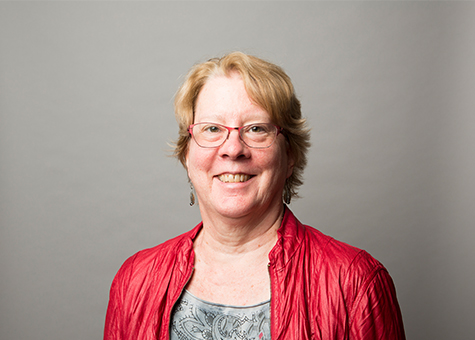 Dr. Cheryl Grady, Senior Scientist, Rotman Research Institute
Dr. Cheryl Grady, Senior Scientist, Rotman Research Institute
While riding the subway to work,
Dr. Cheryl Grady can typically be found poring over a new crossword. As a crossword enthusiast, it was a love for puzzles and a genuine curiosity that attracted her to pursue a career in science.
“Science to me is just one big puzzle. If you want a good riddle, the brain is the best,” says Dr. Grady, a senior scientist at Baycrest’s Rotman Research Institute (RRI) and Canada Research Chair in Neurocognitive Aging. “The brain plays a part in everything we do on a daily basis and it is the most complex organ in the body. To try and figure out how it works is the ultimate puzzle.”
As a fellow of the Royal Society of Canada, Dr. Grady is recognized as a world leader in cognitive neuroscience. Her discoveries have revolutionized our understanding of how aging affects various aspects of brain function, such as perception, attention, memory and thinking. In addition, she has pioneered brain imaging techniques to study the aging brain and uncover how these processes change with age.
In collaboration with other RRI scientists, one of her most notable discoveries was uncovering that the brains of older and younger adults use different regions to complete the same task. In fact, the brains of older adults create new pathways to get the job done, a finding that propelled neuroscience in a new direction. In a follow-up study, Dr. Grady discovered that the unique approach of recruiting different brain areas found in healthy older adults was being used by some individuals in the early stages of Alzheimer’s disease to maintain their memory.
But for every answer that is found, many more questions remain, including how to help find treatments for deadly neurodegenerative diseases, such as dementia.
“In biology, you study how the body works and based on that information you develop a drug that targets a specific biological process to treat or even cure a disease,” says Dr. Grady, who is also a professor in the departments of psychology and psychiatry at the University of Toronto. “But we have not been as successful with the brain because we need to understand more about how it naturally changes over time to pinpoint when it starts veering off course. If we uncover that, we could identify the disease sooner.”
Typical studies about the brain compare development between younger and older adults, but there is limited research on what happens during the middle-ages of adulthood, says Dr. Grady, one of the few researchers studying the entire adult lifespan. It is likely that the illness starts to develop during this time, she adds.
“Through this work, we could one day allow doctors to use brain scans to differentiate between healthy and unhealthy brains during aging,” says Dr. Grady. “We could also establish early warning signs for when a person’s brain is headed down an unhealthy path.”